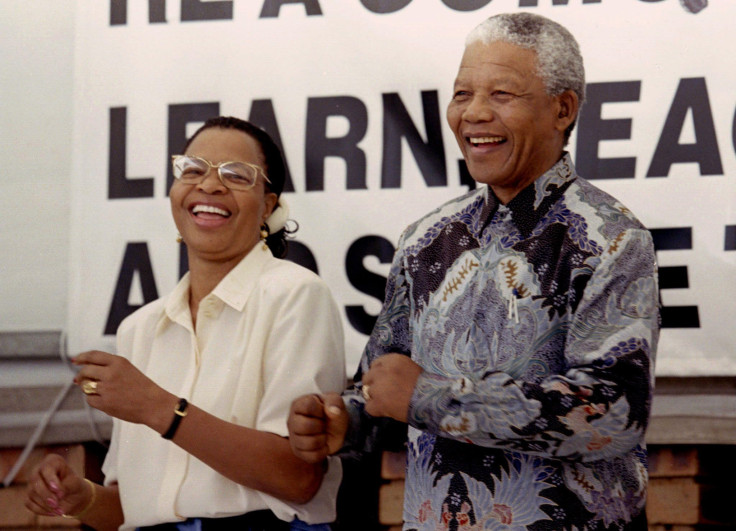Nelson Mandela’s Third Wife Graça Machel: First Lady Of Two Nations And A Leader In Her Own Right

As the world mourns Nelson Mandela, a spotlight also extends to his third wife, Graça Machel, who shared the final years of one of the world’s most respected leaders, and was the first lady of Mozambique when she was married to Mozambique’s first president, but opted to carve out a niche of her own in humanitarian efforts rather than stay in the shadows of her statesmen husbands.
Machel, 68, who was the widow of Samora Machel, Mozambique’s firebrand Marxist independence leader and first president, has the unique honor to have served as the first lady of two different nations. Machel retained the surname of her first husband, who was killed in a plane crash in 1986 close to the South African border. The white South African regime is suspected by many of engineering the crash.
Machel was often dubbed Mozambique’s Jackie Kennedy for her grace, sophistication and dignity, and also for the tragic fate their husbands shared. Yet, she has publicly expressed displeasure for being called “Samora’s wife,” saying: “I’m me.”
Machel married an 80-year-old Mandela two years after the latter’s messy divorce from his second wife, Winnie, in 1996. However, South Africans were not fully convinced that the former first lady of a neighboring country was the best match for their leader.
But, Machel “wasn’t pushy about being the new Mrs. Mandela,” according to Charlayne Hunter-Gault, a former American journalist based in Johannesburg, who was quoted in the Washington Post, in July. “She didn’t flaunt it, and she showed a lot of respect for the feelings of people in South Africa.” Hunter-Gault said.
Machel was born Graça Simbine on Oct. 17, 1945 in a family of peasants on the coast of Mozambique, under Portuguese rule. Machel, whose father died before her birth, received the best education her family could afford and won a scholarship to high school in Mozambique’s capital, Maputo, where she was the only black African in a class full of white students.
Machel’s political ideologies were deeply influenced by her experience during her school years: “Why is it that I’m made to feel strange in my own country? They're the foreigners, not me. Something is wrong here,” Machel said about it later, as quoted by The Guardian.
She was trained as a guerilla fighter during her years in Frelimo, or the Front for the Liberation of Mozambique, and would later meet and marry Samora Machel, the movement’s top leader. After the nation won independence from Portugal, Graça became the education minister and played a key role in boosting the nation’s literacy rate.
She has been honored with several awards for her humanitarian activities, such as the Laureate of Africa Prize for Leadership for the Sustainable End of Hunger in 1992, and the Nansen Medal for her contribution to the welfare of refugee children in 1995.
Machel once said, according to the Guardian, about being married to two leaders who played key roles in the history of two African nations: “It's not two leaders who fell in love with me, but two real people. I feel privileged that I have shared my life with two such exceptional men.”
© Copyright IBTimes 2025. All rights reserved.





















